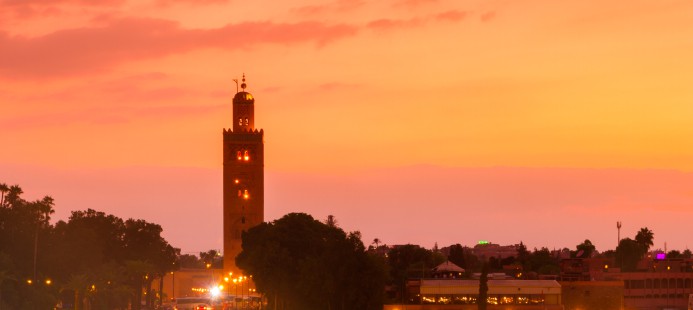Our Opinion: 2015
Morocco’s growth prospects

In recent years, as investors looked to diversify from the main emerging markets, MENA (Middle East North Africa) funds came into vogue. Political unrest in Egypt, Tunisia and Algeria meant that North African markets have had a torrid time, whilst Middle East markets have been spooked by the collapse in oil prices.One North African market, however, stands out. The mountains through the south and east of the country always meant its trade took place not with its immediate neighbours, but with its focus entirely on Europe– mostly through the port city of Tangiers.
The Financial Times recently reported that Morocco may be entering a growth phase, after seven years of a struggling economy which, thankfully, avoided the turmoil that has affected some of its Arab neighbours. It is a country I know well. I am fortunate to have our second home there. I have visited frequently over the years and seen at first hand the ups and downs in its economy. It is a fascinating mix of contrasts. The north of the country sees itself clearly as European. The central belt looks clearly to the Middle East – with its medinas and Islamic schools. And the south is simply Africa. These three great traditions hit head on in the city of Marrakech.
Having previously notched up double-digit growth rates, this North African country was hit by, in close succession, the global financial crisis, the 2011 Arab uprisings and prolonged weakness among its European trading partners.
However, Morocco’s central bank governor, Abdellatif Jouahri, has now said that the country is now on the “right path”, as he pointed to a rise in foreign reserves, modest economic growth and increased activity in important non-agricultural sectors such as textiles, automotive and aeronautics.
“We have been able to go through this period with the least possible damage,” Mr Jouahri said in a rare interview from the bank’s headquarters in the capital, Rabat. “Morocco is not associated with one single product, like oil or steel. We have a bit of everything . . . that helped us get through the difficulties.”
Alone among Arab states, Morocco responded to the Arab uprisings by granting permits to demonstrators and implementing constitutional reforms that propelled to power a government led by moderate Islamists, although King Mohammed VI holds ultimate authority over critical matters of state.
Such stability allowed for the implementation of subsidies and pension reform that helped to improved Morocco’s fiscal balance sheet.
In contrast to Libya, Egypt and Tunisia, where revolutions gave way to political chaos and economic stagnation, Morocco has charted a more steady path.
Its GDP growth since 2008 has been quite a poor 2.5%, largely because of poor agricultural output. But there has been better news elsewhere, with the budget deficit down from 7.3% of GDP in 2012 to 5.4% this year. Mr Jouahri said he hoped it would fall to 3% by 2017.
Subsidies expenditures have fallen from 6% of GDP in 2012 to 3%, while inflation has remained low.
Capital Economics, a London-based consultancy, cited increased tourism arrivals, export growth and rising manufacturing jobs as reasons to predict overall growth of 4.5% to 5% in the fiscal year ending 2016.
He noted that Morocco was the only Arab country exposed to the Arab spring that had qualified for a precautionary credit line from the IMF, a testament to its stability.
At the same time, its economy has remained fragile, and heavily dependent on remittances by labourers working in Europe. Public debt remains relatively high at 64% of GDP, up from 40% in 2011.
But the country’s relatively peaceful political and economic reform have opened the space for modernisation, providing perhaps a more appropriate path for Arab countries than the oil-rich Gulf states.
Over the past fours years, the number of Moroccans with bank accounts has increased from 28% to nearly 66% per cent as increased competition and regulatory changes encouraged banks to seek out new customers.
“We have highly qualified engineers, production line supervisors of high quality and we recently spent $111m upgrading our production lines,” Mr Jouahri said.
Finally, by a freak of geography, Morocco holds about three quarters of the world’s remaining good-quality phosphate reserves.
“Morocco has the most impressive quasi-monopoly in the history of man,” Jeremy Grantham, of US fund managers Grantham Mayo van Otterloo, recently told the BBC. He concluded that “it makes oil look unimportant in comparison.”
That could make Morocco a very rich nation in the future, one that the rest of the world will be keen to court.
